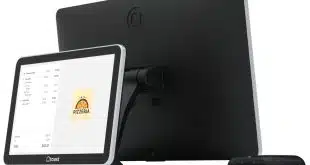Whether he intended to or not, Ken Chenault may well have touched off a debate about what constitutes the ideal governance structure for a global payments network.
Chenault, who will retire early next year as chairman and chief executive of American Express Co., charged this week that his two big rivals, Visa Inc. and Mastercard Inc., committed a big mistake when they spun off to the public what had been bank-owned associations. In response, critics counter that AmEx’s own management model has fallen short in recent decades.
Speaking Monday at an investors’ conference in New York City, Chenault called the decision by Visa and Mastercard to go public “was one of the biggest strategic blunders of the last 20 years,” according to an account of his talk reported by Bloomberg.

Mastercard’s initial public offering took place in 2006, while Visa followed suit two years later. The moves followed decades of ownership of both companies by financial institutions, which operated the networks as nonprofits.
In large part, the spinoffs were a hedge against the risk posed by antitrust lawsuits merchants had filed starting in 2005 that challenged the networks’ interchange-pricing practices. Those suits, now consolidated, will be heard in federal court in Brooklyn, N.Y., following the collapse of a settlement last year.
Chenault argued the IPOs badly undervalued the two companies and cost the banks crucial control over payments economics and developments. “They didn’t understand what they were giving up, and they lost sight of where the puck was going,” Chenault said at the conference, according to Bloomberg. “Along with yielding pricing power to the network, the banks also limited their access to data and merchant relationships at a critical time.”
Visa’s IPO, the biggest in U.S. history at the time, was priced in the midst of a bear market at $44 per share for 406 million shares. Mastercard’s offering sold 66 million shares at $39 each. As of late morning Thursday, Visa’s shares traded at $111 each; Mastercard’s at just shy of $150.
The transfer of both wealth and control, Chenault added, was “unbelievable.” As a result, financial institutions are now reduced to serving the networks’ interests rather than the other way around, he charged. This picture, he said, contrasts with the situation at AmEx, which has been able to steadily introduce services to win customers. “We can’t be reduced to simply facilitating a payment,” he said.
A Mastercard spokesperson would not comment on Chenault’s remarks. Visa did not respond to requests for comment.
What Chenault forgets, critics say, is that public ownership has over time yielded far better results for Visa and Mastercard than AmEx’s model has done for AmEx. “It’s worth recalling [that] in the [United States] in the 1980s American Express, Mastercard, and Visa in payment volume were roughly the same size. Today, in the only national market where the AmEx network is material—the U.S.—it has [approximately] 10% of payment volume,” notes Eric Grover, principal of Intrepid Ventures, a payments consultancy based in Minden, Nev. “The open-network model has proved stronger than the closed-loop model in building network scale in the U.S. and globally.”
Moreover, the spinoffs increased the networks’ underlying value for financial institutions, consumers, and other payments players, Grover contends. “When thousands of banks collectively owned Mastercard and Visa, they were run as not-for-profit bank card utilities. The assets underperformed,” he says. “Their IPOs unshackled Mastercard and Visa from association governance and, as independent payment networks, they became more enterprising and aggressive.”
On one key point, however, Grover agrees with Chenault. In Mastercard’s case, at least, the offering was undervalued, he says. “Partly, that was because in 2006 there were no obvious network-valuation comparables,” Grover says. “Many analysts used public payment processors as valuation benchmarks. The market didn’t appreciate the enormous power of a retail payment network with global critical mass.”





